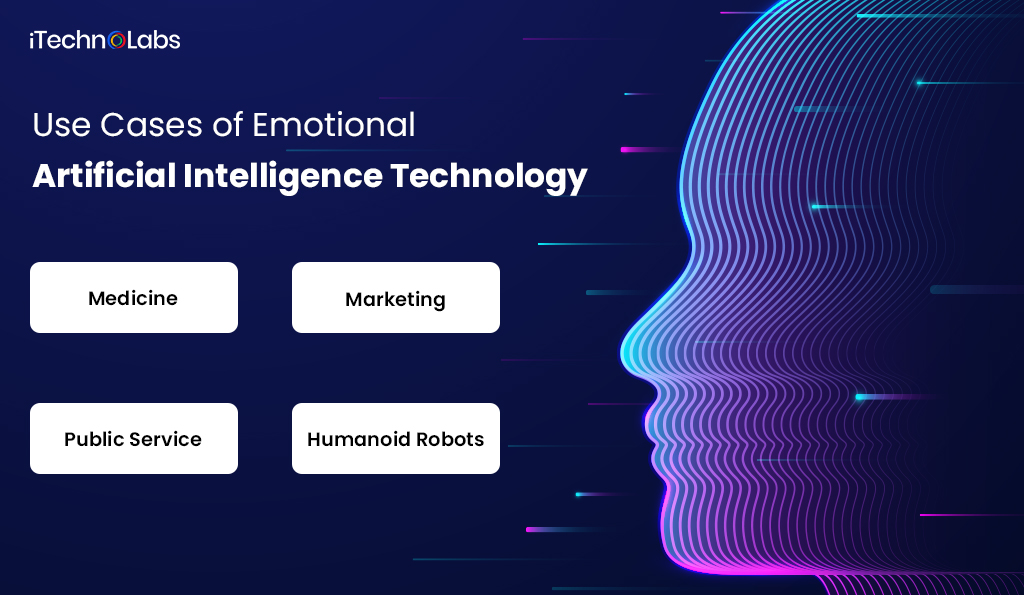
Revolutionizing Interaction: Exploring Emotional AI Applications
In the ever-evolving landscape of artificial intelligence, the integration of emotional intelligence is transforming how machines perceive, interpret, and respond to human emotions. This article delves into the applications of Emotional AI, examining its impact on various industries and its potential to enhance user experiences.
Understanding Emotional AI Technology
Emotional AI, also known as Affective Computing, involves imbuing machines with the ability to recognize, interpret, and respond to human emotions. This technology leverages facial expressions, vocal intonations, and other physiological cues to understand the emotional states of users. By incorporating emotional intelligence, AI systems can engage with users in a more nuanced and empathetic manner.
Humanizing Customer Interactions
In customer-centric industries, Emotional AI applications are revolutionizing the way businesses interact with their clients. Chatbots and virtual assistants equipped with emotional intelligence can discern user emotions and tailor responses accordingly. This humanization of interactions contributes to improved customer satisfaction, fostering a more personalized and empathetic customer experience.
Enhancing Education and Learning Environments
Emotional AI holds immense potential in educational settings, providing personalized and adaptive learning experiences. By analyzing students’ emotional responses, AI systems can gauge their level of engagement and tailor learning materials accordingly. This adaptive approach not only enhances comprehension but also contributes to a positive and supportive learning environment.
Healthcare and Emotional AI for Well-being
In healthcare, Emotional AI applications play a pivotal role in assessing and monitoring patients’ emotional states. From detecting signs of stress to gauging mental health indicators, these applications assist healthcare professionals in providing more holistic and personalized care. Emotional AI contributes to the well-being of patients by addressing emotional aspects often overlooked in traditional healthcare settings.
Empowering Human Resources with Emotional AI
Human Resources (HR) departments are leveraging Emotional AI to enhance various processes. In recruitment, emotional analysis during interviews provides valuable insights into candidates’ suitability for specific roles. Additionally, Emotional AI assists in employee well-being initiatives by monitoring stress levels and identifying areas where additional support may be needed, fostering a healthier workplace environment.
Innovations in Entertainment and Gaming
Emotional AI is reshaping the landscape of entertainment and gaming by creating more immersive and emotionally resonant experiences. In gaming, AI systems can adapt storylines based on players’ emotional reactions, providing a dynamic and personalized gaming environment. In the entertainment industry, Emotional AI enhances content recommendation systems, ensuring that users receive content that aligns with their emotional preferences.
Addressing Mental Health Challenges
Emotional AI applications are increasingly being employed to address mental health challenges. Chatbots and virtual assistants equipped with emotional intelligence can provide immediate support and resources to individuals experiencing emotional distress. These technologies contribute to early intervention and destigmatize seeking help for mental health concerns.
Ethical Considerations and User Privacy
As Emotional AI applications become more pervasive, ethical considerations regarding user privacy and data security come to the forefront. Striking a balance between providing personalized experiences and safeguarding user data is crucial. Implementing robust privacy measures and transparency in how emotional data is collected and utilized is imperative to build and maintain user trust.
The Future Landscape of Emotional AI Applications
The trajectory of Emotional AI applications points towards an increasingly interconnected and emotionally intelligent digital world. As technology continues to advance, Emotional AI will likely play a more integral role in shaping how we interact with machines and how machines understand and respond to our emotions. The ongoing development and refinement of Emotional AI will open new possibilities for innovation and user engagement.
Exploring the Impact: Emotional AI Applications in Action
For those curious about the real-world impact of Emotional AI applications, consider exploring Emotional AI applications. This comprehensive resource provides insights into the latest developments, use cases, and future trends in the realm of Emotional AI. As we navigate the intersection of technology and emotions, the applications of Emotional AI are poised to redefine human-machine interactions across various domains.
